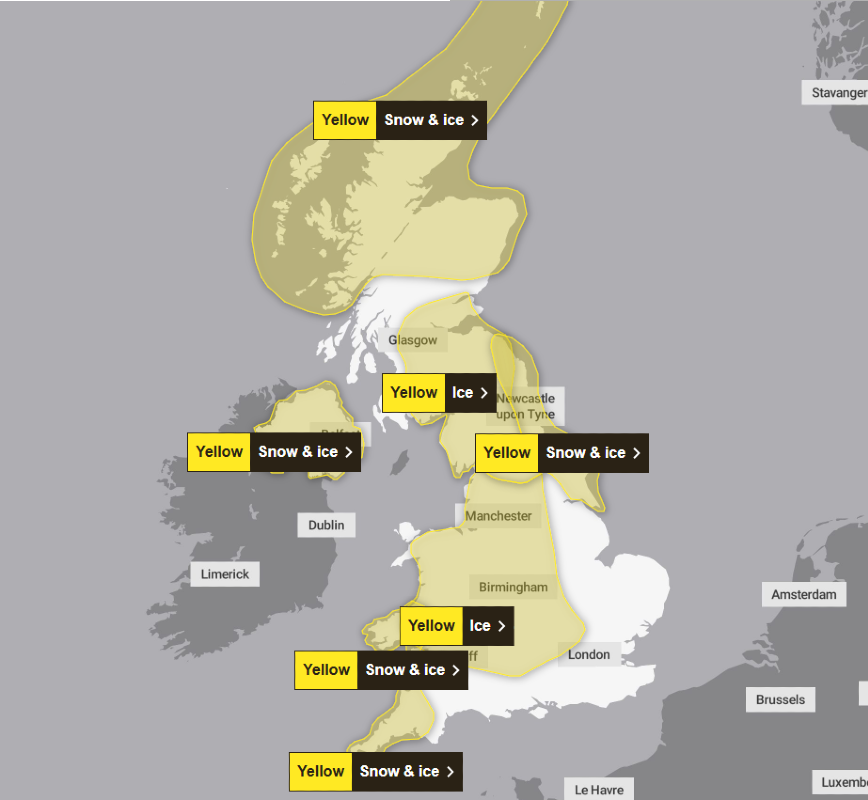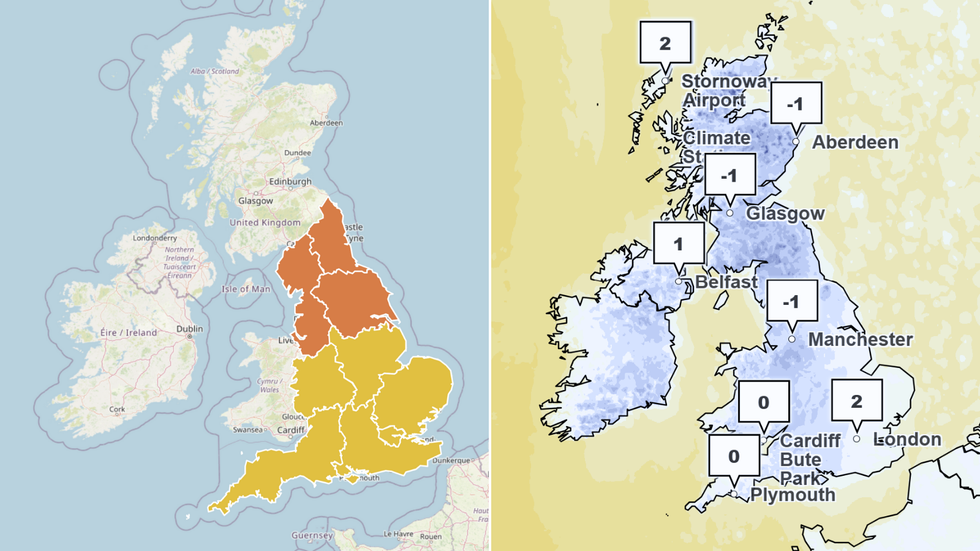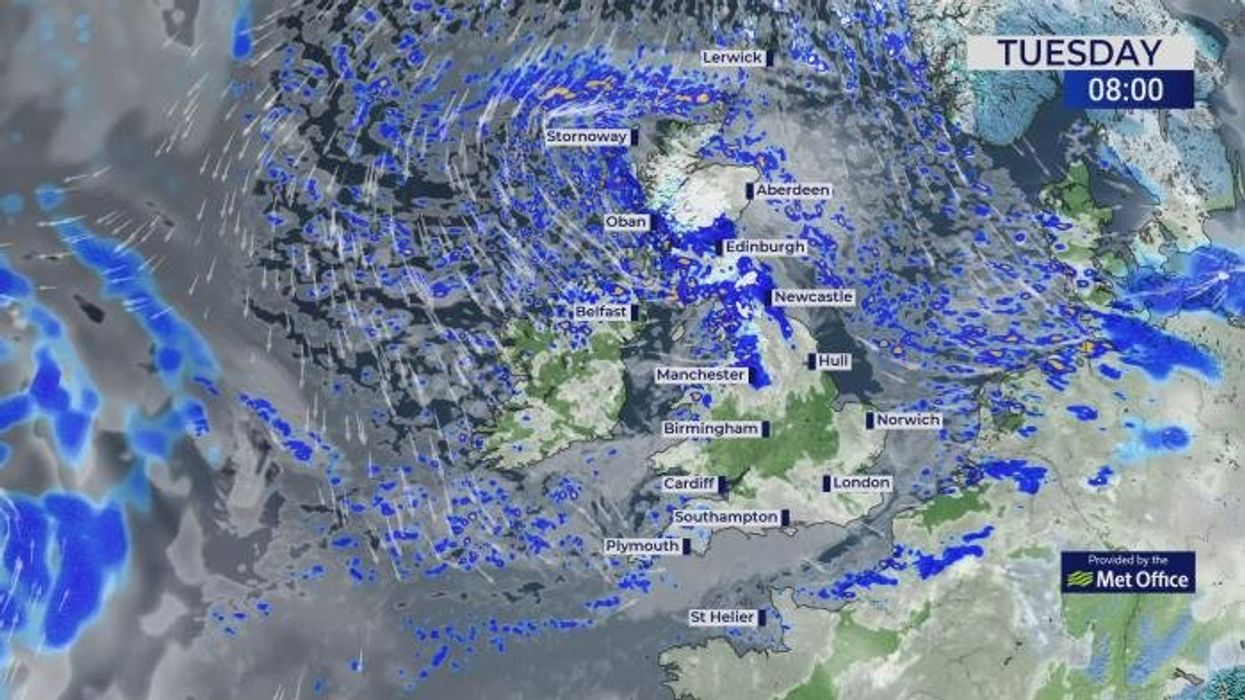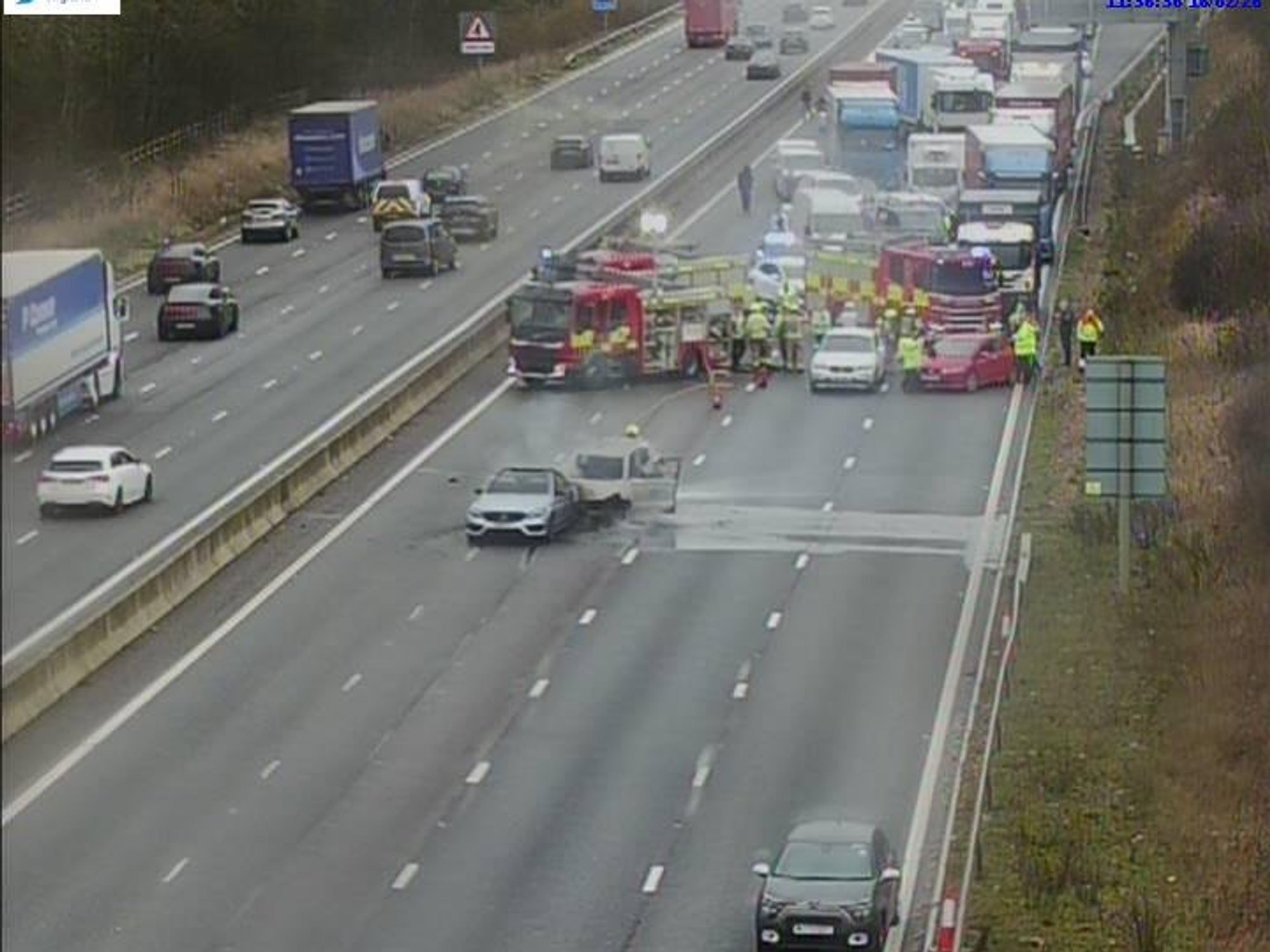Met Office issues raft of fresh snow and ice warnings as Britain frozen to core by Arctic blast

The most recent alert will remain in effect for 36 hours
Don't Miss
Most Read
Latest
The Met Office has issued multiple new snow and ice warnings as Britain continues to suffer under the effects of a bitter cold snap.
Issuing its first yellow warning around 11am today, Britain’s national weather forecaster warned disruption would be likely as wintry showers blow southwards in the coming days.
The snow and ice warning will come into effect at midday tomorrow and will remain in effect until midnight on Thursday - a total of 36 hours.
It is forecast to affect large parts of both South West England and Wales, including Cornwall, Devon, Plymouth, Carmarthenshire, Ceredigion, Pembrokeshire, and Swansea.
TRENDING
Stories
Videos
Your Say
The Met Office warning says: “Wintry showers will feed southwards across southwest Wales and parts of Devon and Cornwall through Wednesday and Thursday, moving well inland on brisk northerly winds.
“Some snow accumulations will be possible in places, especially overnight and/or farther inland away from the immediate windward coast.
“Whilst some places will see little or no lying snow, where showers are most frequent, accumulations of 2-5cm are possible, and perhaps up to 10cm in a few isolated spots, more especially on hills above 200m elevation in Pembrokeshire and west Carmarthenshire.
“Gusty winds and hail may accompany some of the showers, and where showers persist and/or snow partially thaws and refreezes overnight, this will bring a risk of ice.”

It continued to add there would be a small chance that untreated pavements would become impassable. Bus and train services may also be delayed or cancelled.
Just 40 minutes later, the Met Office issued a separate yellow warning for ice.
The ice warning will come into force from midnight on Tuesday and will last for 11 hours.
However, the area of effect is much greater than the warning issued at 11am for the South West and Wales.
LATEST DEVELOPMENTS:
 PICTURED: UKHSA (left) and Met Office (right) maps of Britain for the end of this week. An amber CHA has been issued as temperatures fall | UKHSA/MET OFFICE
PICTURED: UKHSA (left) and Met Office (right) maps of Britain for the end of this week. An amber CHA has been issued as temperatures fall | UKHSA/MET OFFICEAccording to the Met Office, the ice alert will cover a vast area, including East Midlands, West Midlands, parts of London & South East England, North West England, South West England, East of England, Wales, and Yorkshire & Humber.
The warning said rain and hill snow, followed by clearing skies, will lead to the risk of icy patches on Tuesday night into Wednesday morning.
“Outbreaks of rain will spread southwards on Tuesday night into Wednesday morning, potentially falling as snow on hills for a time, before clearing to the south.
“As skies clear later, allowing temperatures to fall close to or below freezing, this will bring the risk of icy patches on untreated surfaces.
“Some temporary slushy snow deposits will be possible where snow persists for long enough, especially on grassy surfaces, but any significant accumulations will be largely restricted to communities and transport routes above about 300m elevation.”
Elsewhere in the country, yellow weather alerts for snow and ice are due to hit Northern Ireland and most of Scotland in the coming days.
In a joint release with the Met Office, the UK Health Security Agency (UKHSA) issued an amber cold alert which is due to affect around 15 million Britons.
From midday on Monday to 8am on Saturday, the UKHSA warns of "significant" knock-on impacts across the health sector.
The agency explicitly warns of a rise in deaths, particularly among those aged 65 and over or with health conditions.
Dr Agostinho Sousa, the head of extreme events and health protection at UKHSA, said: “This is the first prolonged cold spell of the season, and it is therefore vital to check in on friends, family and neighbours that are most vulnerable.
“The forecasted temperatures can have a serious impact on the health of some people, leading to increased risk of heart attacks, strokes and chest infections, particularly for individuals over the age of 65 and those with pre-existing health conditions.”
Our Standards: The GB News Editorial Charter











